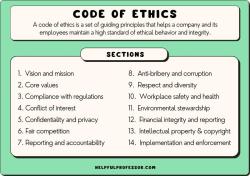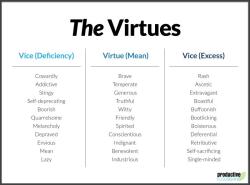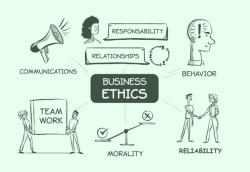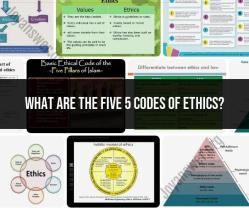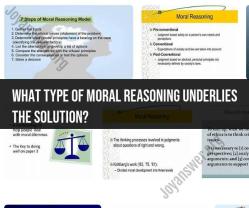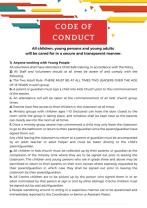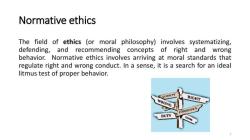Why do bad people get away from doing bad things?
The issue of some wrongdoers avoiding consequences is a complex and multifaceted one. It's important to note that not all individuals who engage in wrongful behavior are "bad people," and the reasons why some individuals avoid facing consequences can vary widely. Here are several factors that can contribute to this complexity:
Legal System Challenges:
- The legal system can sometimes be complex and may have loopholes or procedural issues that can make it difficult to prosecute individuals for their actions. This can lead to cases being dismissed or individuals receiving lighter sentences.
Resource Disparities:
- Wealth and resources can play a significant role in the legal process. Wealthy individuals may have access to high-quality legal representation, which can lead to more favorable outcomes. Conversely, those who cannot afford adequate legal representation may face disadvantages.
Lack of Evidence:
- In some cases, there may be insufficient evidence to prove guilt beyond a reasonable doubt. Without strong evidence, it can be challenging to secure convictions.
Witness Intimidation or Silence:
- Witnesses and victims may be intimidated or coerced into silence, making it difficult to gather evidence or obtain testimony. This can hinder the prosecution's case.
Corruption and Bribery:
- In some instances, individuals with power and influence may engage in corrupt practices, including bribery or collusion with law enforcement officials, to avoid consequences.
Statute of Limitations:
- Some crimes have a statute of limitations, which means that after a certain period of time has passed, individuals cannot be prosecuted for those crimes. This can allow wrongdoers to escape legal consequences if enough time has elapsed.
Political or Social Influence:
- Individuals with political connections or social influence may be protected from facing consequences due to their connections and the potential repercussions for those who would hold them accountable.
Overloaded Legal System:
- Overburdened legal systems may prioritize certain cases over others, leading to delays or dropped charges in some instances.
Mistakes and Errors:
- The legal process is not infallible, and mistakes or errors can occur at various stages, including during investigations, trials, or appeals.
Complexity of Cases:
- Some cases may be extremely complex, involving multiple parties, jurisdictions, or legal issues. Complexity can make it challenging to bring cases to resolution.
Cultural and Societal Factors:
- Cultural norms and societal attitudes can influence how certain behaviors are viewed and treated within a community or society. In some cases, cultural factors may deter individuals from reporting wrongdoing.
Victim Reluctance:
- Victims may be reluctant to report crimes or cooperate with authorities due to fear, shame, or concerns about retaliation.
It's important to recognize that the pursuit of justice is an ongoing process that involves multiple stakeholders, including law enforcement, the legal system, the community, and society at large. Efforts to address the complexities of justice often involve reforms aimed at improving transparency, equity, and accountability within the legal system.
While some wrongdoers may appear to avoid consequences, it is crucial to work toward a more just and equitable society where accountability and fairness prevail. This may involve addressing systemic issues, enhancing legal processes, and promoting a culture of ethical behavior and responsibility.
The Complexity of Accountability: Why Some Wrongdoers Evade Justice
There are many reasons why some wrongdoers evade justice. Some of the most common factors include:
- Lack of evidence: In order to convict someone of a crime, prosecutors must prove their case beyond a reasonable doubt. This can be difficult, especially in cases where there is little or no physical evidence.
- Powerful connections: Some wrongdoers may have powerful connections that help them to avoid prosecution or get lighter sentences. For example, a wealthy person may be able to afford better legal representation or bribe officials.
- Corruption: Corruption within the criminal justice system can also allow wrongdoers to evade justice. For example, a judge may be bribed to dismiss a case or give a lighter sentence.
- Systemic racism and bias: People of color and other marginalized groups are more likely to be arrested, charged, and convicted of crimes than white people. They are also more likely to receive harsher sentences. This systemic racism and bias can make it difficult for these groups to achieve justice.
Investigating the Factors Allowing Wrongdoers to Avoid Consequences
Researchers are working to better understand the factors that allow wrongdoers to evade justice. Some of the areas they are studying include:
- The role of law enforcement: How do law enforcement agencies investigate and prosecute crimes? What are the challenges they face?
- The role of the courts: How do judges and other court personnel make decisions about cases? What are the factors they consider?
- The role of the criminal justice system as a whole: How do the different parts of the criminal justice system work together? What are the gaps and challenges?
By understanding the factors that allow wrongdoers to evade justice, researchers can develop recommendations for how to improve the system and ensure that everyone is held accountable for their actions.
Seeking Justice and Accountability: Challenges in Addressing Bad Behavior
There are a number of challenges involved in seeking justice and accountability for wrongdoers. Some of the most common challenges include:
- Overcoming public apathy: Many people believe that the criminal justice system is broken and that there is no point in trying to seek justice. This apathy can make it difficult to hold wrongdoers accountable.
- Fear of retaliation: Victims of crime may be afraid to come forward and report crimes. This is especially true if the wrongdoer is someone powerful or well-connected.
- Lack of resources: Victims of crime may not have the resources to pursue justice. This may be due to financial constraints or lack of legal knowledge.
Despite these challenges, it is important to seek justice and accountability for wrongdoers. When wrongdoers are not held accountable, it sends a message that their behavior is acceptable. This can lead to more crime and injustice.
There are a number of things that can be done to address the challenges of seeking justice and accountability. One important step is to educate the public about the criminal justice system and the importance of reporting crimes. Another important step is to provide victims of crime with the resources and support they need to pursue justice.
By taking these steps, we can create a more just and equitable society.



